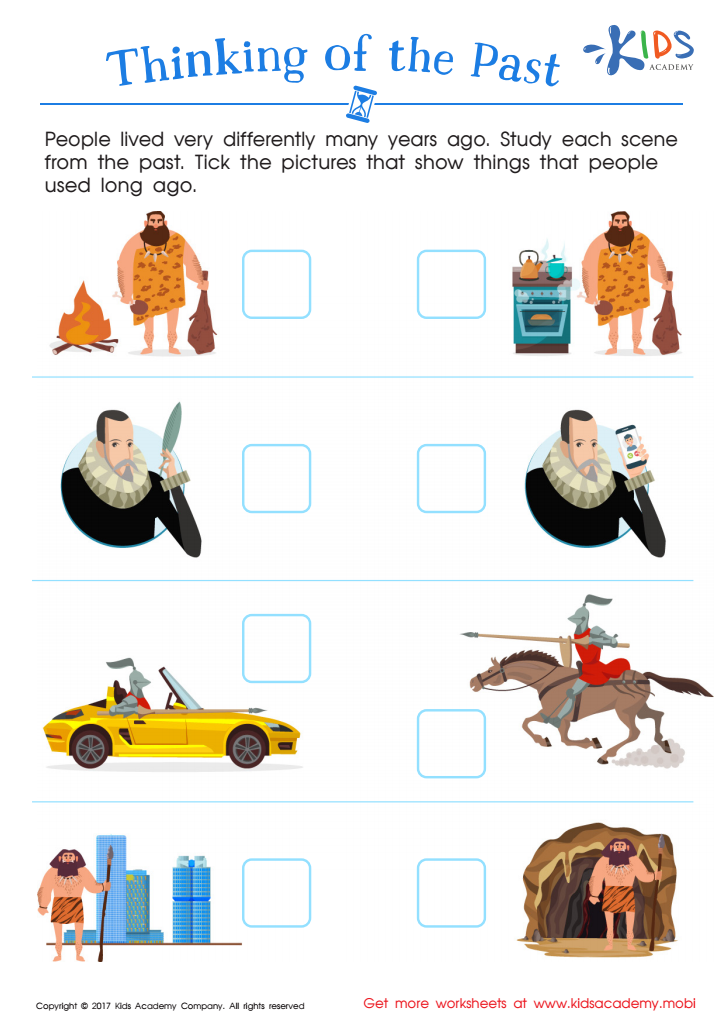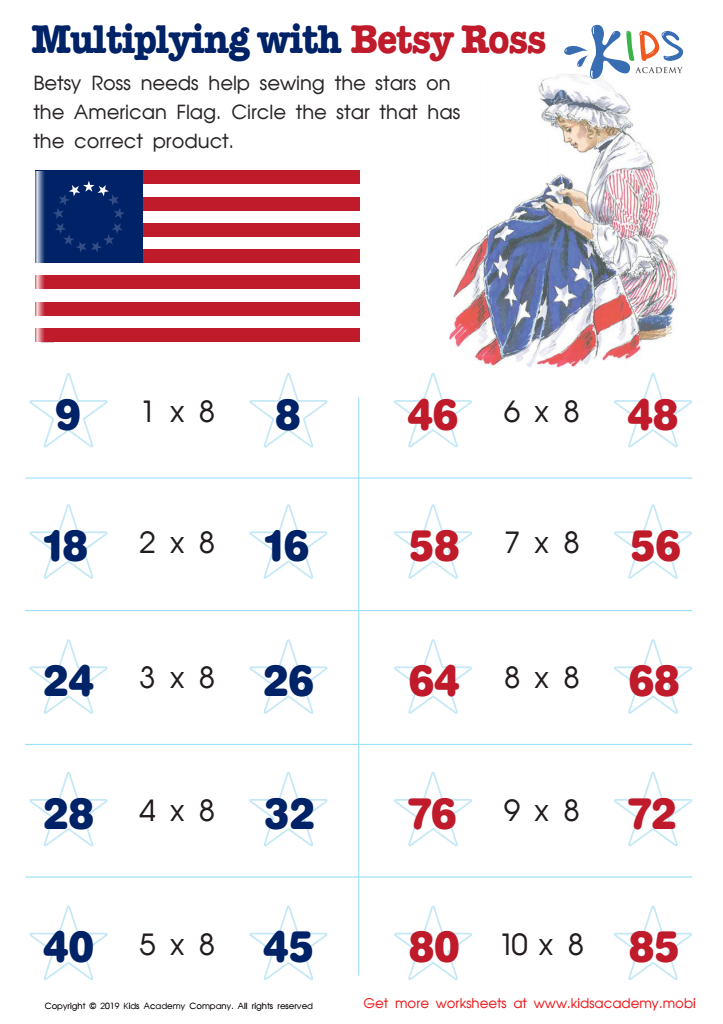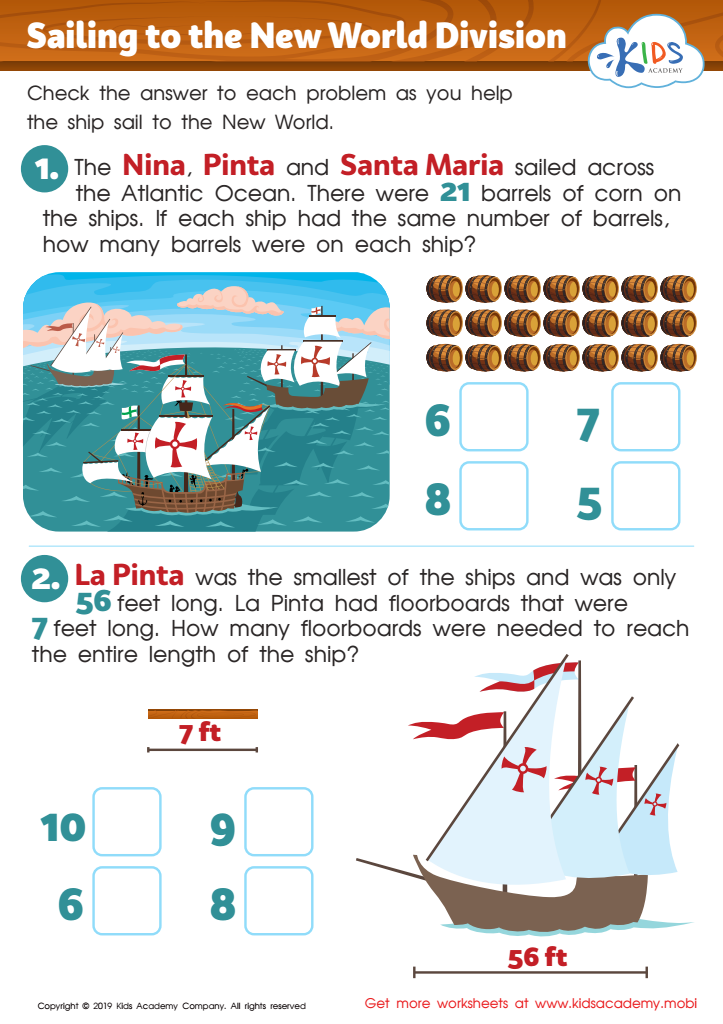Problem-Solving Skills Normal History Worksheets for Ages 7-8
3 filtered results
-
From - To
Enhance your child's critical thinking with our engaging Problem-Solving Skills Normal History Worksheets designed specifically for ages 7-8. These printable resources promote interactive learning, encouraging young learners to tackle challenges and think creatively about historical events. Tailored to align with curriculum standards, our worksheets help students understand cause-and-effect relationships in history while enhancing their analytical skills. Activities include puzzles, scenario-based questions, and research tasks that make learning fun and effective. Perfect for classroom use or at-home practice, these worksheets are a great way to foster a love for history and nurture essential problem-solving abilities in young minds. Start exploring today!


Thinking Past Printable


Multiplying with Betsy Ross Worksheet


Sailing to the New World Division Worksheet
Parents and teachers should prioritize problem-solving skills for children aged 7-8 because these foundational abilities significantly influence a child's overall development. At this age, children start encountering more complex challenges in their academic and social lives, making it critical to equip them with the skills to navigate these situations confidently and effectively.
High-quality problem-solving skills help children learn to identify issues, brainstorm solutions, and analyze outcomes. This process not only fosters independence but also boosts critical thinking, creativity, and collaboration. Encouraging problem-solving in daily activities aids children's cognitive growth, ensuring they become adaptable, resilient individuals as they progress through life.
Moreover, these skills translate into improved academic performance, as children become adept at tackling math problems, reading comprehension questions, and scientific inquiries. They learn to approach challenges with a positive mindset, reducing anxiety related to academic tasks.
Additionally, problem-solving skills are essential for social interactions. By learning to navigate conflicts and work collaboratively, children develop vital social skills that lead to healthier relationships. Thus, fostering problem-solving skills in young learners is an investment that benefits their academic pursuits, emotional well-being, and social interactions, ultimately preparing them for future success.
 Assign to My Students
Assign to My Students



.jpg)











